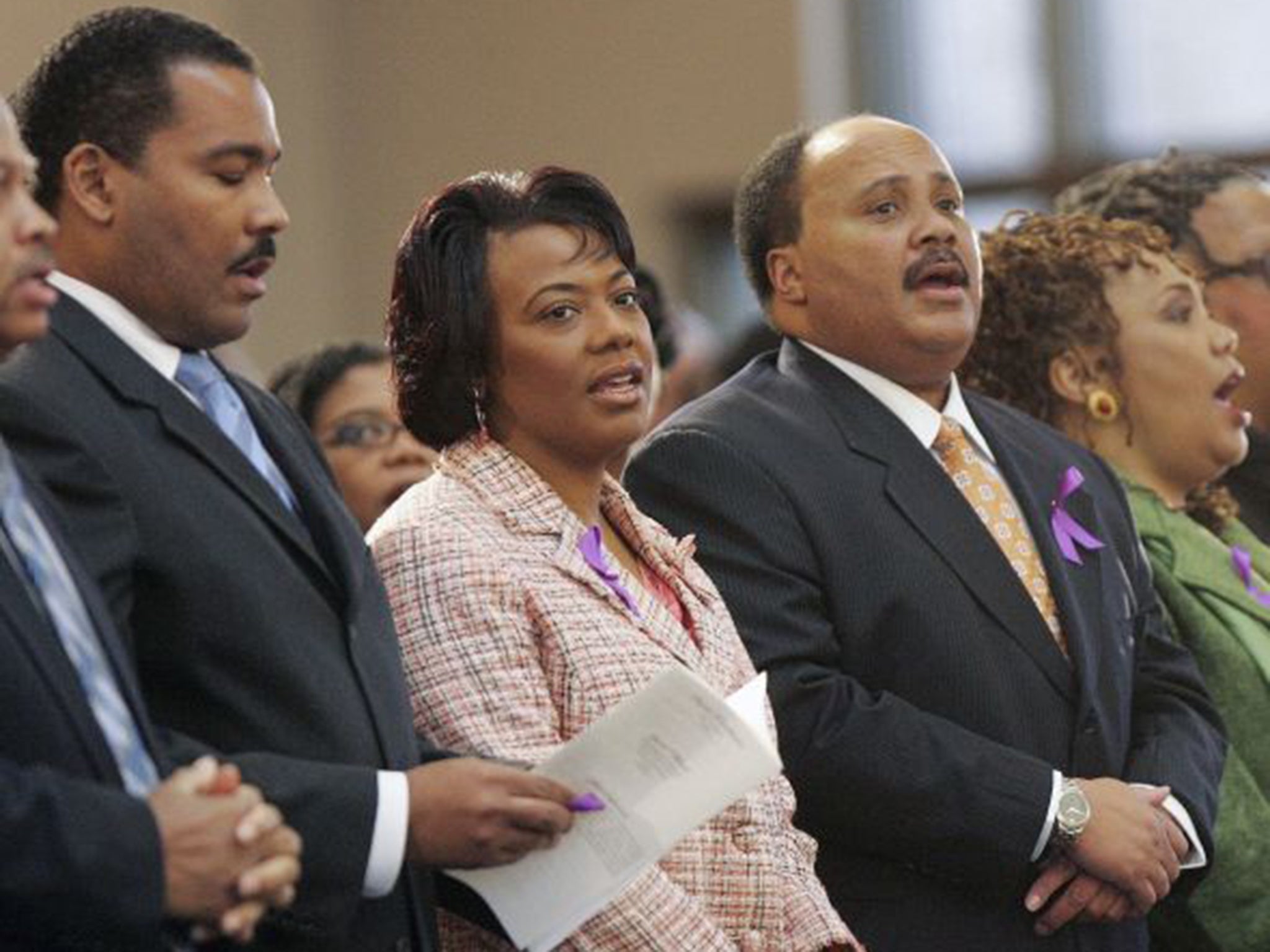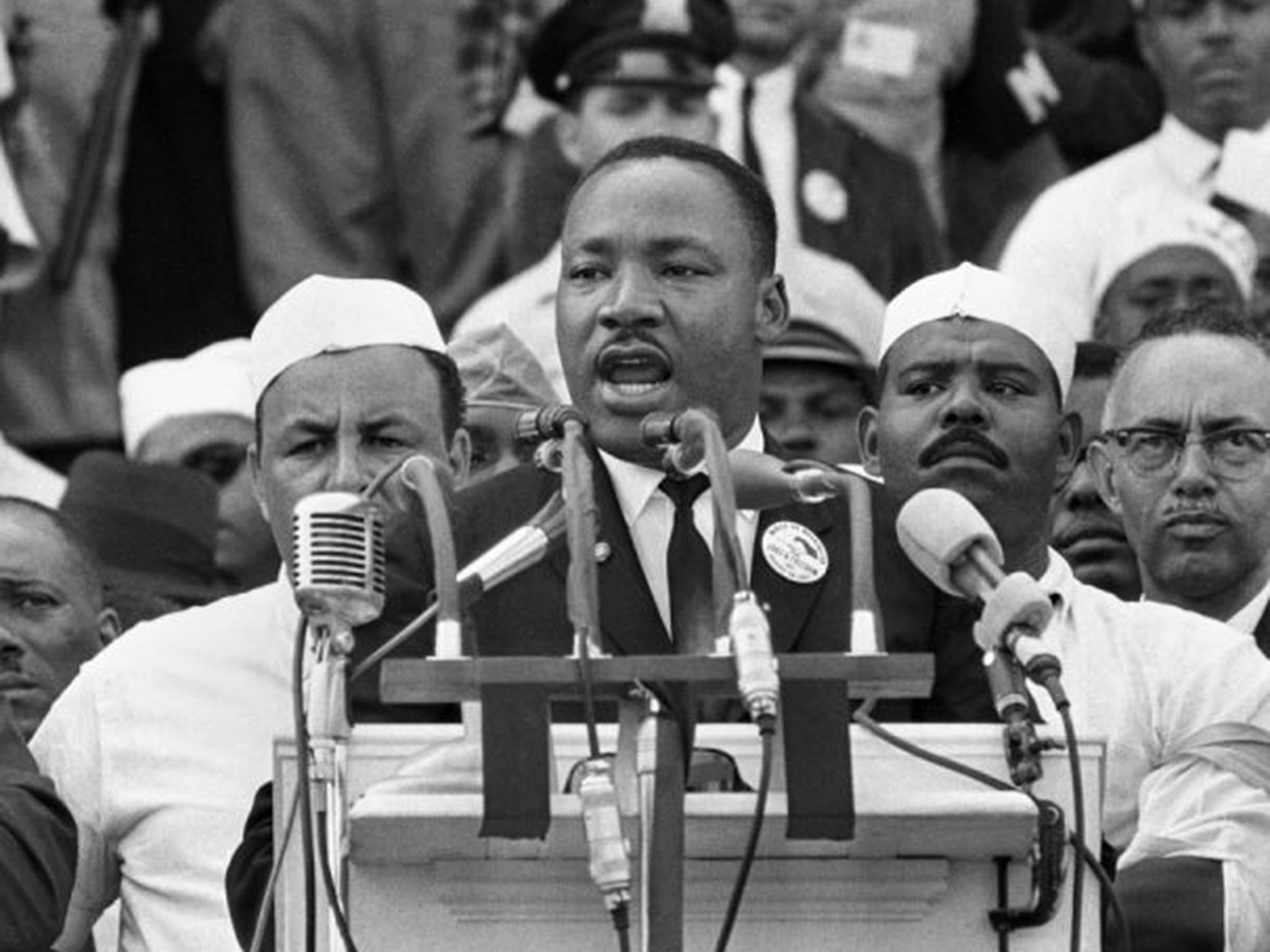Martin Luther King's children feud over whether to sell his Bible and Nobel Peace Prize medal
This is the fifth lawsuit between the siblings in the past 10 years

Your support helps us to tell the story
From reproductive rights to climate change to Big Tech, The Independent is on the ground when the story is developing. Whether it's investigating the financials of Elon Musk's pro-Trump PAC or producing our latest documentary, 'The A Word', which shines a light on the American women fighting for reproductive rights, we know how important it is to parse out the facts from the messaging.
At such a critical moment in US history, we need reporters on the ground. Your donation allows us to keep sending journalists to speak to both sides of the story.
The Independent is trusted by Americans across the entire political spectrum. And unlike many other quality news outlets, we choose not to lock Americans out of our reporting and analysis with paywalls. We believe quality journalism should be available to everyone, paid for by those who can afford it.
Your support makes all the difference.A judge in Atlanta will face the unenviable task tomorrow of trying to umpire the latest in a long line of unseemly legal squabbles between the children of the late Martin Luther King Jnr, this time involving the ownership of his now dog-eared travelling Bible and the Nobel Peace Prize medal he won in 1964.
Exactly when the public last glimpsed the medal, which he was awarded a year before organising the historic march from Selma to Montgomery in Alabama to demand voting rights, isn’t quite clear. The one that sits in a display case at the King Centre in Atlanta is a replica. The Bible could have been glimpsed if you had a front row seat as President Barack Obama laid his hand on it at his second inauguration in January 2013.
For now, however, both are hidden in the darkness of a court-controlled security deposit box in Atlanta as the offspring of Dr King demonstrate one more time that his teachings of peace and reconciliation did not rub off on them. This is the fifth lawsuit between the siblings in the past 10 years.
At issue this time is a demand by the Estate of Martin Luther King Jnr, which is controlled by two sons, Martin Luther King III and Dexter Scott King, that his daughter (their sister), Bernice, hand over the medal and the Bible which she deems her own. They want to put them on the market to raise funds for the estate. She says that selling them would be sacrilege. The parties aren’t speaking to one another.
In theory, Fulton County Superior Court Judge Robert McBurney could decide the case on Tuesday. Alternatively, he may decide the wrangle warrants a full trial which could start as early next month.
Ms King says the medal was a gift from her father to her mother, the late Coretta Scott King, and that it therefore belongs to the Coretta Scott King Estate, which she controls. But the more potent question is whether items so close to the core of what her father stood for and accomplished should be sold at all.

“There is no justification for selling either of these sacred items. They are priceless and should never be exchanged for money in the marketplace,” she said in a statement responding the lawsuit last year.
“While I love my brothers dearly, this latest decision by them... reveals a desperation beyond comprehension.” She has made the same argument from the pulpit of the historic Ebenezer Baptist Church in Atlanta, where her father often preached.
The Rev Timothy McDonald, a former assistant pastor at the church, sympathised in an interview with the Associated Press. “You don’t sell Bibles and you don’t get but one Nobel Peace Prize,” he said. “There are some items that you just don’t put a price on.”
Nothing seems free of legal friction when it comes to Dr King. Audiences of the new film Selma, which has British actor David Oyelowo portraying the civil rights leader, are unlikely to be aware of the fact that none of his actual words are spoken on the screen because the rights to his sermons have already been licensed to another film company.
Lawyers for the estate argue that it is obliged to sell off assets to pay for running costs. In 2006 it caused an outcry when it sought to raise $30m by auctioning off some of Dr King’s private papers.
Join our commenting forum
Join thought-provoking conversations, follow other Independent readers and see their replies
Comments